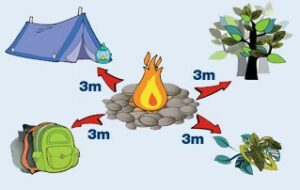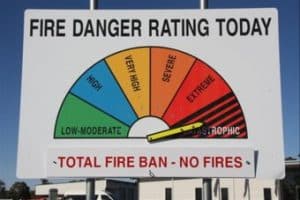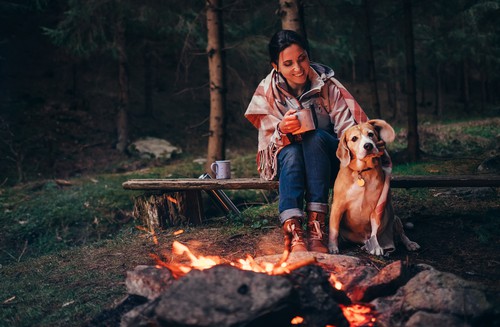A highlight of camping is sitting around an open fire and being mesmerised by the flames. But campfire safety is of the utmost importance so here are few tips and rules for your to be aware of.
If a campfire is not constructed, used and extinguished correctly it can also easily cause a bushfire.
5 Campfire Rules:
- Positioning – Make sure you are in an area that allows campfires. Campfires should be positioned in cleared areas, where there are no overhanging branches, minimal grass and scrub. Ensure the campfire is a safe distance from tents, and that any other camping equipment is stored well away from it – especially flammable items such as gas cylinders and fuel cans. It is recommended a clear area of 3 meters around the fire.
- Building – Where possible use a fireplace such as a barbecue pit or build a fire pit 30cm deep and surround it with large dry rocks. Never use river or creek rocks as they may shatter. Ensure the fire stays a controllable size.
- Starting – Start your campfire using appropriate ignition source and fire lighter, paper and small kindling. Never use any kind of flammable liquids (such as petrol) on a fire to get it started. Always keep a bucket of water and a shovel nearby for emergencies.
- Extinguishing – Put your campfire out with water when you have finished with it. Do not use soil as fire can smoulder under the soil. General rule – if it’s cool to touch, it’s safe to leave.
- Monitoring – Never leave unattended. Any campfire left unattended for any period of time, particularly overnight, should be extinguished by using a bucket of water.

Before you light a fire:
- Make sure there are no fire bans in your camping area.
- Do not light or maintain a campfire on dry, windy days.
- Do no light or maintain a campfire when the Fire Danger Rating (FDR) is very high, severe, extreme or catastrophic. Fire Danger Rating Explanations
- Do not light a campfire during a Total Fire Ban (TFB). When a TFB is declared it is illegal to do anything that is likely to start a fire which includes cooking outside using an open fire. You could be fined up to $25,000 or jailed for 12 months or both if you ignore the TFB.

Easy steps for looking after your campfire:
- Keep your fire just big enough for cooking and keeping warm.
- Never leave your fire unattended, not even for a minute. Put your fire out properly even if going for a short walk or swim.
- Extinguish your fire at night. Many children are burnt by campfires in the morning from hot ashes and embers.
- Children and pets should be supervised at all times when near a fire.
- Use only fallen dead wood. Branches or leaves from living trees damages the environment and can cause high levels of smoke.
- Do not burn dangerous or flammable items, such as aerosol cans as they can explode.
- Cans and other aluminium products do not burn.
- Never put glass in your campfire as it will melt and shatter or explode hitting people nearby.
- Never put unopened tins of food on a fire to cook as they may explode and cause injuries.
In an emergency call Triple Zero (000) to report a fire.




